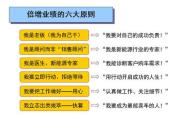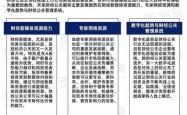codm使命理财
Title: Understanding CODOL Financial Activities: Strategies and Considerations
In the realm of finance, CODOL, which stands for Centralized OnDemand Liquidity, refers to a mechanism designed to streamline liquidity management for financial institutions, particularly in the context of crossborder transactions. Let's delve into the intricacies of CODOL financial activities, exploring strategies and considerations for its implementation.
Understanding CODOL:
CODOL is a financial framework that leverages digital assets, particularly cryptocurrencies, to facilitate instant and costeffective crossborder transactions. It operates on blockchain technology, providing a decentralized platform for transferring funds between different financial institutions globally.
Key Components of CODOL Financial Activities:
1.
Blockchain Technology
: At the core of CODOL lies blockchain, a distributed ledger technology that ensures transparency, security, and immutability of transactions. Through blockchain, CODOL facilitates peertopeer transactions without the need for intermediaries.2.
Digital Assets
: CODOL utilizes digital assets, such as cryptocurrencies (e.g., Bitcoin, Ethereum, XRP), as a medium of exchange. These assets enable quick and efficient crossborder transfers, mitigating the challenges associated with traditional fiat currencies.3.
Liquidity Pools
: CODOL establishes liquidity pools, which are reservoirs of digital assets held by participating financial institutions. These pools ensure the availability of funds for instant settlements, reducing transaction times and costs.4.
Smart Contracts
: Smart contracts are selfexecuting contracts with predefined terms and conditions written into code. In CODOL, smart contracts automate the settlement process, ensuring trustless and seamless transactions between parties.
Strategies for Effective CODOL Implementation:
1.
Partnership Building
: Financial institutions should collaborate with blockchain technology providers and regulatory bodies to ensure compliance and seamless integration of CODOL into existing infrastructure.2.
Risk Management
: Implement robust risk management protocols to mitigate potential risks associated with digital assets, such as volatility, security breaches, and regulatory uncertainties.3.
Scalability
: Design CODOL systems with scalability in mind to accommodate growing transaction volumes and expand into new markets without compromising efficiency or security.4.
User Education
: Educate stakeholders, including employees and clients, about the benefits and risks of CODOL to foster trust and confidence in the system.Considerations for CODOL Financial Activities:
1.
Regulatory Compliance
: Stay abreast of evolving regulations governing digital assets and crossborder transactions to ensure compliance and avoid legal repercussions.2.
Security Measures
: Implement robust cybersecurity measures, such as encryption, multifactor authentication, and intrusion detection systems, to safeguard against cyber threats and unauthorized access.3.
Market Volatility
: Monitor market trends and volatility of digital assets to minimize exposure to financial risks and optimize liquidity management strategies.4.
Customer Experience
: Prioritize user experience by offering intuitive interfaces, realtime transaction tracking, and responsive customer support to enhance satisfaction and retention rates.Conclusion:
CODOL presents a transformative solution for enhancing liquidity management and facilitating crossborder transactions in the financial sector. By leveraging blockchain technology and digital assets, financial institutions can streamline operations, reduce costs, and improve overall efficiency. However, successful implementation requires careful planning, strategic partnerships, and adherence to regulatory guidelines. With the right strategies and considerations in place, CODOL has the potential to revolutionize the global financial landscape.
免责声明:本网站部分内容由用户上传,若侵犯您权益,请联系我们,谢谢!联系QQ:2760375052









